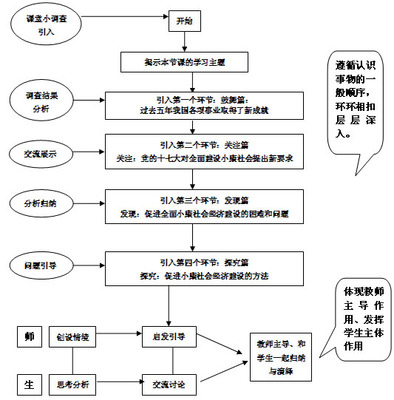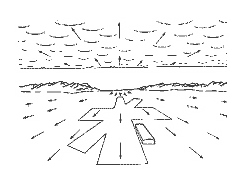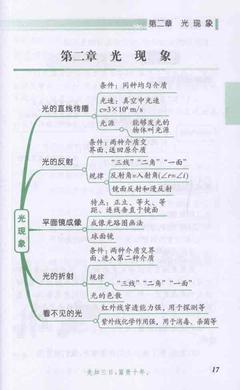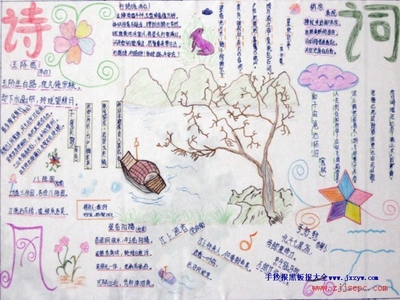一、直接引语和间接引语
1、直接引语
在引用别人的原话时,被引用的句子称为直接引语。引起引语的词称为引用动词。
“I remember I have seen you.”I said.
He said , “I lost my umbrella.”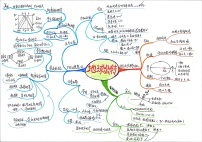
2、间接引语
当人们用自己的话转述别人的话时,被转述的部分称为间接引语(indirect speech),也可称作引语结构(reportedstructure)。
Mary said she had already seen the film.
He replied that he was going by train.
这时被引用部分常常是引用动词的宾语。除了say, reply这类词外,还有很多动词可跟这种从句。
He felt he had to do something.
She guessed that he had gone to town.
He thought she was worried.
He explained that the train wasn’t running.
二、直接引语变间接引语
1、如何变人称
下面有一句顺口溜“一随主。二随宾,第三人称不更新”。“一随主”是指在直接引语变间接引语时,如果从句中的主语是第一人称或被第一人称所修饰。从句中的人称要按照主句中主语的人称变化如:
She said. "My brother wants to gowith me. "
→She said her brother wanted to gowith her.
“二随宾”是指直接引语变间接引语时,若从句中的主语及宾语是第二人称。或被第二人你所修饰。从句中的人称要跟引号外的主句的宾语一致。如果引号外的主句没有宾语。也可以用第一人称,如:
He said to Kate. "How is your sister now?"→
He asked Kate how her sister wasthen。
“第三人称不更新”是指直接引语变间接引语时。如果从句中的主语及宾语是第三人称或被第三人称所修饰从句中的人称一般不需要变化如:
Mr Smith said。 "Jack is a good worker。"→Mr Smith said Jack was agood worker。
2、如何变时态:
直接引语在改为间接引语时、时态需要做相应的调整。
现在时它需改为过去时态;过去时态改为完成时;过去完成时则保留原来的时态。
一般现在时一般过去时
现在进行时过去进行时
现在完成时过去完成时
一般过去时过去完成时
过去完成时不变
一般将来时过去将来时
如:
1)She said. "I have lost a pen."→She said she had lost a pen
2)She said. "We hope so."→She said they hoped so.
3) She said. "He will go to see his friend。"→She said he would goto see his friend。
但要注意在以下几种情况下。在直接引语变为间接引语时,时态一般不变化。
①直接引语是客观真理。
"The earth moves around the sun and the moon moves around theearth, the teacher told me.
→ The teacher told me the earthmoves around the sun and the moon moves around theearth。
②直接引语是过去进行时,时态不变。如:
Jack said. "John, where were you going when I met you in thestreet?"→Jack asked John where he was going when he met him in thestreet。
③直接引语中有具体的过去某年、某月、某日作状语,变为间接引语时,时态不变。如:
Xiao Wang said. "I was born on April 2l, 1980。" →Xiao Wang said hewas born on April 20, 1980。
④直接引语如果是一般现在时。表示一种反复出现或习惯性的动作,变间接引语,时态不变。如:
He said, "I get up at six every morning。" →He said he gets up atsix every morning。
⑤如果直接引语中的情态动词没有过去时的形式(例:ought to, hadbetter, used to)和已经是过去时的形式时,(例:could, should, would,might)不再变。如:
Peter said. "You had better come have today。"
→Peter said Ihad better go there that day。
“You should be back by six.”shesaid.
→She said I should be back by six.
⑥当强调动作或状态现在仍然如此时(如改变可能引起误会),可以保持原时态。
She said ,“I’ll be back tonight.”
→She said that she will be back tonight.
她说她今晚回来。(这可能是午后的话)
⑦直接引语中凡有when, since引导的从句,在变为间接引语时,从句的过去时态不变。
He said, “I have studied English since I was at the age offive.”
→He said he had studied English since he was at the age offive
⑧当直接引语是虚拟语气时,保持原时态不变。
“We wish we didn’t have to take exams.”said thechildren.
→The children said they wishedthey didn’t have to take exams.
3、如何变状语:
直接引语变间接引语,状语变化有其内在规律,时间状语由“现在”改为“原来”(例:now变为then,yesterday。变为 the daybefore)地点状语,尤其表示方向性的,或用指示代词修饰的状语,由“此”改为“彼”(例:this 改为that),如:
He said, "These books are mine." →He said those books werehis.
一般说来,here 常改为there,today 改为that day。这类改变大致可用下表表示:
在直接引语中在间接引语中
指示代词
this(place)that (place)
these(places)those (places)
时间状语
nowthen
today,tonightthat day, that night
this week (month, etc)thatweek (month, etc.)
yesterdaythe day before, the previous day
last week(month)the week (month, etc.) before
two days (a year, etc) ago twodays (a year,etc.) before (earlier)
tomorrowthe next (following ) day
next week (month,etc.)the next (following) week (month,etc.)
表地点的词
here there
4、如何变句型:
①直接引语如果是陈述句,间接引语应改为由that引导的宾语从句。如:Shesaid, "Our bus will arrive in five minutes."→She said that theirbus would arrive in five minutes.
②直接引语如果是反意疑问句,选择疑问句或一般疑问句,间接引语应改为由whether或if引导的宾语从句.如:Hesaid, "Can you swim, John?" →He asked John if he could swim.
"You have finished the homework, haven‘t you?" my mother asked. →Mymother asked me whether I had finished the homework.
"Do you go to school by bus or by bike?" →He asked me if I went toschool by bus or by bike.
③直接引语如果是特殊问句,间接引语应该改为由疑问代词或疑问副词引导的宾语从句(宾语从句必须用陈述句语序)。
She asked me, "When do they have their dinner?"→ She asked me whenthey had their dinner.
④直接引语如果是祈使句,间接引语应改为"tell(ask, order,beg等) sb (not) to do sth."句型。如:
"Don’t make any noise," she said to the children. →She told(ordered) the children not to make any noise. "Bring me a cup oftea, please," said she.→She asked him to bring her a cup oftea.
⑤直接引语如果是以“Let‘s”开头的祈使句,变为间接引语时,通常用“suggest+动句词(或从句)。”如:
He said, "Let’s go to the film." →He suggested going to thefilm.或He suggested that they should go to see the film.
⑥直接引语是祝福语
当直接引语是祝福语,转换为间接引语时,可以用saysomethingtosomeone;wishsomeonetobe/have...形式。如:
“Happybirthdaytoyou,Alice!”Garysaid.
a.Garysaid“Happybirthday”toAlice.
b.GarywishedAlicetohaveahappybirthday.
⑦直接引语是感叹句
当直接引语是感叹句时,可以转换为以原来的感叹词what或how所引导的宾语从句;也可以用that把原来的感叹句改为宾语从句。如:
Wesaid:“Whataclevermonkeyitis!”
a.Wesaidwhataclevermonkeyitwas.
b.Wesaidthatitwasaclevermonkey.
直接引语和间接引语练习
I.请选出正确的答案:
1.WherewasAlice’ssister?Idon’tknowwhere________.
A.wasAlice’ssisterB.Alice’ssisterwas
C.isAlice’ssisterD.Alice’ssisteris
2.Whatdidhesay?Idon’tknowwhat_________.
A.didhesayB.hesaysC.hehassaidD.hesaid
3.Idon’tknow___________.
A.thereasonwhycanbeB.whythereasonmaybe
C.whatthereasoncanbeD.whatthereasonmaybe
4.Iwonder_________.whichofthefollowingisnottherightchoice?
A.whethershewillbefitforthejobornotB.whetherornotshewillbefitforthejob
C.ifshewillbefitforthejobD.whatshewillbefitforthejob
5.IsMr.WufromBeijing?Idon’tknow________.
A.wheredoeshecomefromB.fromwheredoeshecomeC.whichcityhecomesfromD.whatcityhecomesfrom
6.Canyoumakesure___________?
A.thathewillcomeheretodayB.whenhewillcomeheretodayC.willhecomeheretodayD.whetherwillhecomeheretoday
7.Doyouhappentoknow________?A.whereisheraddressB.inwhichplaceisheraddress
C.whatheraddressisD.theplaceheraddressis
8.Excuseme,butcanyoutellme___________?A.wherecanIgettothelibraryB.whereIcangettothelibraryC.howcanIgettothelibraryD.howIcangettothelibrary
9.Johnaskedme_______tovisithisuncle’sfarmwithhim.
A.howwouldIlikeB.ifornotwouldIlike
C.whetherIwouldlikeD.whichIwouldlike
10.I’dliketoknow________Chinese.
A.whenhebegantolearnB.whendidhebegintolearn
C.whendidhebeginlearningD.forhowlonghebegantolearn
Ⅱ、将所给直接引语变为间接引语,每空一词:
1. “I never eat meat.” hesaid.
He said that ______ never ______meat.
2. “I’ve found my wallet.” he saidto me.
He ______ me that he ______ ____________ wallet.
3. “I took it home with me.” shesaid.
She said that ______ _____________ it home with her.
4. The teacher said, “The sunrises in the east and goes down in the west.”
The teacher said that the sun______ in the east and ______ down in the west.
5. “I met her yesterday.” he saidto me.
He ______ me that he ______ metthe day ______.
6. “You must come here beforefive.” he said.
He said that I ______ to go ______before five.
7. “I bought the house 10 yearsago.” he said.
He said that he _______ bought thehouse 10 years _______.
8. “Did you see her last week?” hesaid.
He ______ ______ I had seen herthe week _______.
9. He said, “You can sit here,Jim.”
He ______ Jim that he ______ sitthere
10. He asked, “How did you findit, mother?”
He asked her mother ______ ____________ found it.
11. “Where have you been thesedays?” he asked.
He asked me _______ ______________been _______ days.
12. “Do you know where she lives?”he asked.
He asked ______ ______ knew whereshe ______.
13. “Stop making so much noise,children.” he said.
He ______ the children ____________ ______ so much noise.
14. “Don’t tell him the news.” shesaid.
She told me _______ ______ ______him the news.
15. “Are you intested in this?” hesaid.
He ______ ______ I was interestdin ______.
Ⅲ、将下列句子变为间接引语:
1.“Youshouldbemorecarefulnexttime,”hisfathersaidtohim.
2.Mr.Wangsaid,“IwillleaveforShanghaionbusinessnextmonth,children”
3.“Ihaven’theardfrommyparentsthesedays,”saidMary.
4.Thegeographyteachersaidtous,“Themoonmovesaroundtheearthandtheearthgoesroundthesun.”
5.Shesaidtohim,“It’stimethatyoulefthere.”
6.ZhangHongsaidtome,“DoctorWangpassedawayin1948.”
7.Johnsaidtohisparents,“Ihadlearned500Chinesewordsbytheendof
lastterm.”
8.Thehistoryteachersaidtothem,“TheChineseCommunistPartywasfoundedonJuly1st,1921.”
9.Hesaid,“Areyouastudent?”
10.“HaveyouanythinginterestingIcanread,George?”shesaid.
11.“She’sheretoaskforhelp,isn’tshe?”heasked.
12.“Whereareyougoing?”thefatheraskedhisson.
13.“Areyousorryforwhatyouhavedone?”themotheraskedthenaughtyboy.
14.Shesaid,“Didyoumeetthismanatthestationtwohoursago,Mr.Li?”
15.“Writeyournamesonyourpapersfirst,”theteachersaidtous
16.“Pleasecomehereagaintomorrow,”herfriendsaidtoher.
17.“Letmepacktheparcelforyou,”hesaid.
18.“Don’tmakesomuchnoiseinclass,boysandgirls,”saidtheteacher.
19.“Whatalovelydayitis!”
20.“HappyNewYeartoyou!”hesaid.
Ⅳ、把下列句子变为直接引语:
1.ItoldhimthatIhadlostmymoneyandthatIwouldfindit.
2.SheaskedwhetherIwouldbefreethenextdayornot.
3.Iaskedherwhereshewasgoingandwhatshewasgoingtodothenextday.
4.Hisfathertoldhimnottoclimbthathightreeinhisnewcoat.
5.Thestrangeraskedmewhatmynamewas.
6.Shesaidthatshewouldfinishherworkthenextday.
7.Theteacheraskedifwecoulddoit.
8.Thecommanderorderedhismennottocrosstheriverbeforedawn.
9.Myteacheraskedwhetherhewascoming.
10.ThescientistaskedmewhatIwasdoing.
Ⅴ、尽可能快地口头把下列句子变为间接引语:
1 He said , “Mother, the boy isvery naughty.”
2 He said to me, “I have left mybook in your room.”
3 Kitty said “I’ll call againafter supper this evening.”
4 She said, “I will come hereagain tonight.”
5 He said, “I arrived yesterdaymorning.”
6 She said , “My sister will beback tomorrow morning.”
7 “The children had better go tobed early,” she said.
8 He said , “I have lost myumbrella.”
9 Paul said, “I’m trying to get ataxi.”
10 “I never eat meat.” Heexplained.
11 “Have you been here for ages?”she said.
12 “I took the dictionary homewith me,” he said.
13 “Frank, I came to return youthe book,” Henry said.
14 He asked, “Are you sure yourmother will come?’
15 He asked, “Are you a teacher ora student?”
16 He said to me, “Please comeagain tomorrow.”
17 He said to me, “Don’t do thatagain.”
18 He said, “Where is shegoing?”
19 “Who lives next door?” sheasked.
20 “What’s happened?” heasked.
21 “Where is the airport?” heasked.
22.”What have you got in yourbag?” the asked .
23 “Mary, when is the next train?”he asked.
24 “Why did you stop the car, Tom?” she asked.
25 “Is there anyone here?” heasked.
26 “Do you know Mrs Green?” heasked me.
27 “Shall I wait for them or shallI go on?” the man asked.
28 “Shall I lock the car or leaveit unlocked?” she asked.
29 “Will you be here tomorrow?” heasked me.
30 “Would you like to come in fora drink?” she asked Bill.
31 “Could me give me a hand?” MrBlack asked Tom.
32 “You’ll be back tonight, won’tyou?” my wife asked me.
33 “Don’t swim out too far,children,” mother said.
34 “Please let me have a try.”Jane said to the teacher.
35 “Do sit down, everybody.” saidthe hostess.
36 “Please don’t take any risks,”said his wife.
37 “Don’t forget to take yourpills,” said mother to his daughter.
38 “Put down your gun, man!” saidthe inspector.
39 “Be quiet, girls.” said the oldman.
40 “Bring your textbook with youtomorrow, please.” The teacher said to her.
41 I asked WangPing “Are there any spelling mistakes in my exercises?”
Ⅵ、请将下面的直接引语变成间接引语。
1. “Whenever myfather is unhappy,” Ann said, “he will go out and buy something,usually something large and useless.
2. “In mostcountries Red Cross stands for humanitarianism (人道主义),” said Mr.Jackson.
3. “You mustleave a note for your mother,” said Mabel, “otherwise, she’ll beterribly worried when you’re not in at your usual time.”
4. “You canleave your motor cycle in my garage if you like,” Mr. Corder said.“I’ll keep an eye on it while you’re away.
5. He said,“After the lecture I have to rush home.”
6. Mary said,“I’m starting the work the day after tomorrow.”
7. He said, “Ifwhat you said is true I must go to the police.”
8. “I know theumbrella belongs to you, but I thought it would be all right if Iborrowed it,” said my nephew.
9. “You mustn’tforget to put the stamp on or your friend will have to pay doublepostage (邮资),” he told me.
10. “I’ve left some books on yourtable,” said Tom. “I think you’ll find them useful. You can keepthem as long as you need them, but I’d like them back when you’vefinished with them.”
直接引语和间接引语练习参考答案
Ⅰ、1-5BDCDC6-10ACDCA
Ⅱ、1. he, ate2. told, had, found, his
3. she, had,taken4. rise, goes
5. told, had,before6. had, there
7. had, before8. asked, if [whether], before
9. told, could10. how, she, had
11. where, I, had,those12. if [whether], I, lived
13. told, to,stop14. not, to, tell
15. asked, if [whether],that
Ⅲ、1.Hisfathertoldhimthatheshouldbemorecarefulthenexttime.
2.Mr.WangtoldthechildrenthathewouldleaveforShanghaionbusinessthenextmonth.
3.Marysaidthatshehadn’theardfromherparentsthosedays.
4.Thegeographyteachertoldusthatthemoonmovesaroundtheearthandtheearthgoesroundthesun.
5.Shetoldhimthatitwastimethatheleftthere.
6.ZhangHongtoldmethatDoctorWangpassedawayin1948.
7.Johntoldhisparentsthathehadlearned500Chinesewordsbytheendoflastterm.
8.ThehistoryteachertoldthemthattheChineseCommunistPartywasfoundedonJuly1st,1921.
9.HeaskedwhetherIwasastudent.
10.SheaskedGeorgeifhehadanythinginterestingshecouldread.
11.Heaskedwhethershewastheretoaskforhelpornot.
12.Thefatheraskedhissonwherehewasgoing.
13.Themotheraskedthenaughtyboyifhewassorryforwhathehaddone.
14.SheaskedMr.Liwhetherhehadmetthatmanatthestationtwohoursbefore.
15.Theteachertoldustowriteournamesonourpapersfirst.
16.Herfriendaskedhertogothereagainthenext/followingday.
17.Heofferedtopacktheparcelforme.
18.Theteachertoldtheboysandgirlsnottomakesomuchnoiseinclass.
19.He/Sheexclaimedthatitwasreallyalovelyday.
20.HewishedmeaHappyNewYear.
Ⅳ1.Isaidtohim,“Ihavelostmymoney.Iwillfindit.”
2.Sheasked,“Youwillbefreetomorrow,won’tyou?”
3.Iaskedher,“Whereareyougoingandwhatareyougoingtodotomorrow?”
4.Hisfathersaid,“Don’tclimbthishightreeinyournewcoat.”
5.Thestrangerasked,“What’syourname?”
6.“I’llfinishmyworktomorrow,”shesaid.
7.Theteacherasked,“Canyoudoit?”
8.Thecommanderorderedhismen,“Don’tcrosstheriverbeforedawn.”
9.Myteacherasked,“Ishecoming?”
10.Thescientistaskedme,“Whatareyoudoing?”
Ⅴ、略.
Ⅵ、1. Ann saidwhenever her father was unhappy he would go out and buy something,usually something large and useless.2. Mr.Jackson said in most countries Red Cross stood forhumanitarianism.
3. Mabel told methat I must leave a note for my mother, otherwise she would beterribly worried when I was not in at my usual time.
4. Mr. Cordersaid to me that I could leave my motor cycle in his garage if Iliked and that he would keep an eye on it while I wasaway.
5. He said afterthe lecture he had to rush home.
6. Mary said shewas starting the work in two days’ time.
7. He told me ifwhat I had said was true he must go to the police.
8. My nephewsaid to me he knew the umbrella belonged to me, but he had thoughtit would be all right if he borrowed it.
9. He told methat I mustn’t forget to put the stamp on or my friend would haveto pay double postage.
10.Tom said he had left some books on my table, and that he thought Iwould find them useful. He also said I could keep them as long as Ineeded them, but he would like them back when I had finished withthem.
 爱华网
爱华网